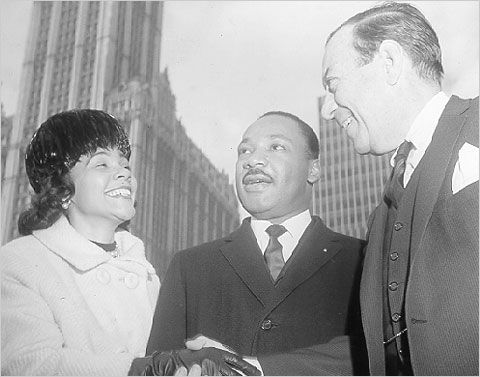♀️ The Trailblazing Women of Wall Street
Women have long shaped Wall Street—even when history tried to write them out.


Though many of Dr. King’s most famous speeches and protests—including the “I Have a Dream” speech—took place in Washington D.C. and the South, he often visited New York City. His message of equality for all and Civil Rights received support from Harlem Churches, including the influential Abyssinian Baptist Church, and New York-based organizations, like the National Urban League. Fortunately, Dr. King had not been too afraid or angry to return to New York City after he was stabbed by a deranged woman at a book signing in Harlem in 1958.

On October 14, 1964, Dr. Martin Luther King Jr. was awarded the Nobel Peace Prize in Norway. One week later, Mayor Robert F. Wagner presented him with the Medallion of Honor in New York City and declared, “This is not your city of residence, Dr. King, but it is your city nevertheless… We claim you, henceforth, as an honorary New Yorker.”
In 1965, Dr. King began to publicly express doubts about the Vietnam War. He returned to New York City in 1967, and delivered a speech opposing the war at Riverside Church in Morningside Heights exactly a year before he was assassinated. On April 15, 1967, he spoke at and participated in an anti-war march from Central Park to the United Nations. Dr. King’s stand against the Vietnam War cost him a lot of the support he had gotten from the press and white allies, including President Lyndon Johnson.
However, nothing could tarnish his reputation as one of the most important figures of the 20th century. Dr. Martin Luther King Jr. will always be remembered for advancing Civil Rights, freedom and justice in our country and the world.
See more from our Vintage Photos column, including John F. Kennedy’s Presidential Campaign in NYC.
Subscribe to our newsletter